Follow your ballot: Maricopa County's process and security leading up to the election
Maricopa County was thrust into the national spotlight after the 2020 election and, in spite of continuous conspiracies, election denial and even threats to workers, county and state election officials are working to assure the public that the upcoming election will be accessible to voters, safe and fair.
“We know the eyes of the world are on Maricopa County,” Bill Gates, chairperson of the Maricopa County Board of Supervisors, said.
Gates was a panelist at the "Follow the Ballot: Be Confident Your Vote Is Counted” event at the Arizona Heritage Center in Tempe moderated by Sasha Hupka, an Arizona Republic reporter who covers Maricopa County and its elections department.
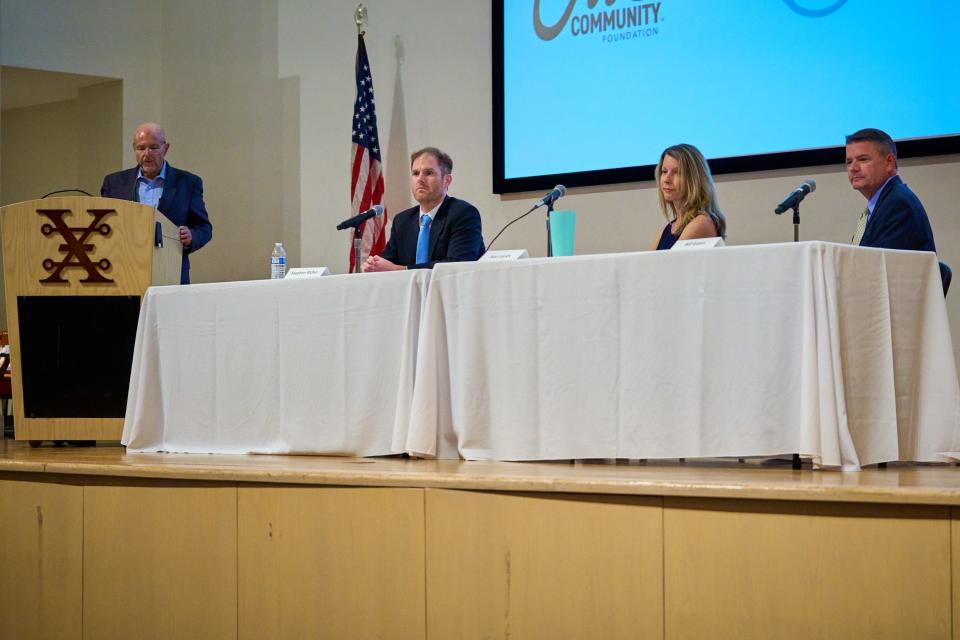
Voters in Arizona have a variety of choices for how to cast their ballots, and each method has its own stringent levels of security, Maricopa County Recorder Stephen Richer said.
Most voters in the county vote early, either by mail, dropping off a ballot in person or going to an early voting location. Maricopa County already received about 800,000 early ballots as of Nov. 2.
However, election security begins before a person ever receives a ballot, he said. A person must confirm their identity, citizenship and residency to register to vote. The county then confirms each of those factors before the person is added to the voter rolls.
Securing early ballots
Once an early ballot is returned, workers scan the barcode on the envelope, which is unique to that voter and links to that person’s individual registration profile, Richer said. Scanning the barcode also deactivates any other early ballot the person might have requested.
Next, workers with Runbeck Election Services will capture an image of the signature on the envelope and county workers compare it to the previous signatures from that voter. Those workers have been trained with a forensic signature specialist to look for inconsistencies.
If the signature matches what the county has on file, the ballot moves on to the processing team, Richer said. If the signature does not match, the county will reach out to the voter by all means possible to “cure” the ballot and confirm whether it was the correct person who submitted the ballot.
In the August primary election, 13,000 envelopes were deemed as having bad signatures, and 11,000 of those were cured.
Richer said there can be more than 50 people at a time working on signature verification.
“I just want to impress upon you that all steps of this process are bipartisan,” he said, adding that there is nearly the same number of Republicans and Democrats working as temporary workers. “That's one of the many checks that is inherent to the system.”
Envelopes containing ballots are not opened until they are deemed valid and have gone through the verification process, Richer said.
Securing in-person voting
Voters, regardless of if they use adaptive equipment to make the process accessible for them such as hearing assistance, vote by a paper ballot, Kori Lorick, director of election services for the Arizona Secretary of State's office, said.
A paper ballot adds opportunities for additional checks at the back end of the process, with a hand count audit, Lorick said, which checks a percentage of the ballots to ensure the tabulation equipment worked properly.
All voting machines and equipment must be approved by both the federal and state government, Lorick said, and all machines are lab tested before the election.
“Our equipment performs very well and is very accurate,” Lorick said.
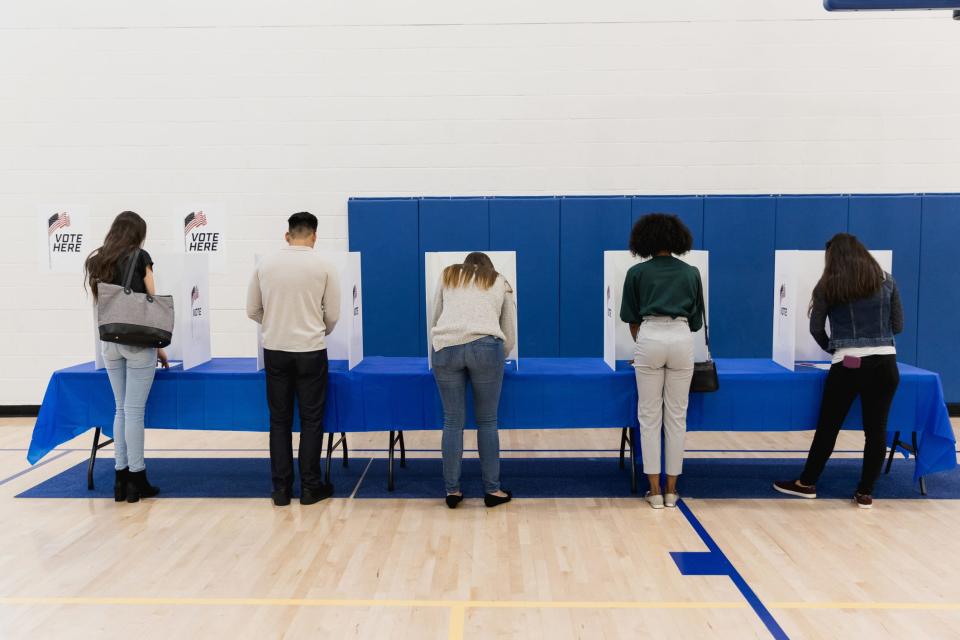
Once results are gathered at each voting center on election night, a bipartisan team of two people are responsible for bringing a flash drive from the voting center to the tabulation center. The drive is placed in a sealed pouch before it is transported to the tabulation center, Gates said. The drives must remain sealed until they are delivered, and if the seal was broken, that would be a red flag that the drive could have been tampered with.
The physical delivery of the drives is done instead of transmitting the information over the internet, adding another level of security, Gates said.
“There are these additional checks that are in place,” Gates said, adding that the use of physical drives should make the public more confident in the process.
The county’s tabulation center is “fairly state-of-the-art,” Richer said. The areas are live streamed 24/7 and only a limited number of people have badge access to the room. Even the wiring is exposed to visibly show that all wires that go into the tabulator go directly into the election management server, and do not leave the room.
“Those are the sort of measures we’ve taken, which are hopefully above and beyond what is recommended at either the state or federal level,” Richer said.
Counting votes: What takes so long?
While it may seem like it takes an extraordinary amount of time to learn the official results of an election — particularly in close races — Arizona has rules in place that make the release of results go more quickly than other states.
Arizona allows votes received and verified before Election Day to be tabulated early, so a substantial bulk of results are released about an hour after the polls close on election night, Richer said. In August's election, 84% of votes were counted and released that night, he said.
Was my Arizona ballot counted?: Here's how to find out
Arizona also requires all mailed ballots to be received by Election Day, unlike some states that simply require ballots to be postmarked by that day. This hastens vote counting in Arizona.
"Results are returned very quickly in Arizona," Lorick said.
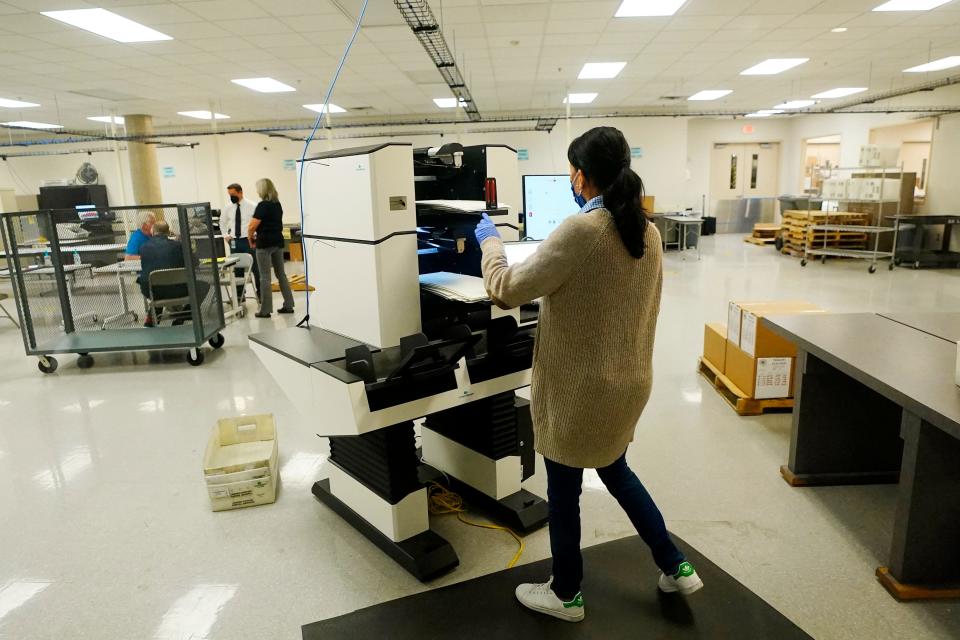
However, there are some circumstances that can slow a final tally. By state law, voters in this election will have until Nov. 16 to cure their early ballot if there is an issue, she said, which means some votes will not be counted until after that date.
Also, early ballots cast on Election Day still must go through the signature verification process.
Races in Arizona often are very close, so it can be multiple days before a winner is clear. Gates said that contributes to the perception that Arizona's results are slow. In reality, other states can take just as long to tally, but sometimes there is an obvious winner in those races long before all votes are counted.
Tackling misinformation: 'Democracy is kind of on trial here'
Gates, a Republican who has served on the Phoenix City Council and the Maricopa County Board of Supervisors, said the intense amount of misinformation and conspiracy theories that have centered around Maricopa County and the speed that misinformation travels has made elections much different now than they were even a decade ago.
All members of the panel encouraged people to share truthful information regarding elections security and accuracy, and to direct any questions to the proper channels.
“We've got a lot of people who can answer even very technical questions,” Richer said.
Richer said election denying has become a political ploy that has elevated some people to stardom.
He didn't mince words. “These people are lying to you,” he said of public figures who continue to claim the 2020 election was fraudulent. “There's the occasional one who really believes it, but most of them are lying to you.”
Most people who continue to push claims of election fraud would privately acknowledge it’s false, Richer said. However, they have seen political gains come from pushing the theory.
“We have created a culture and we have created political incentives where these people in leadership positions will continue to perpetuate this falsehood,” he said.
Truth or fiction?: 5 steps to avoid getting duped by election season misinformation
Tom Greiner, a Phoenix resident who attended the event, said he would like to be optimistic that those elected in the next few years who play a role in elections will accept and respect voting results, but he's worried that might not be the case.
“I understand why you feel that way,” Gates said. “I’m not ready to give up yet. The eyes of the world are on Arizona and on Maricopa County. Democracy is kind of on trial here.”
A plea to his party
Gates said he is often approached by Republicans who say in private that they believe the election was fair and Maricopa County’s elections are secure, but they avoid the topic publicly.
“It has really saddened me that so many people have just gone quiet,” he said.
Many Republicans do not believe the election was stolen, he said, but are afraid of being targeted by election deniers.
“As long as we are quiet, these loud people that are spreading these lies are going to continue to control the party,” he said. “They’re going to continue to win elections.”
Gates said it is time for Republican elected officials who believe in the integrity of elections to speak out.
“What are they waiting for?” he questioned. “If you ran for office, if you did all this stuff to become an elected official and you’re silent when this is going on, why did you run for office in the first place?”
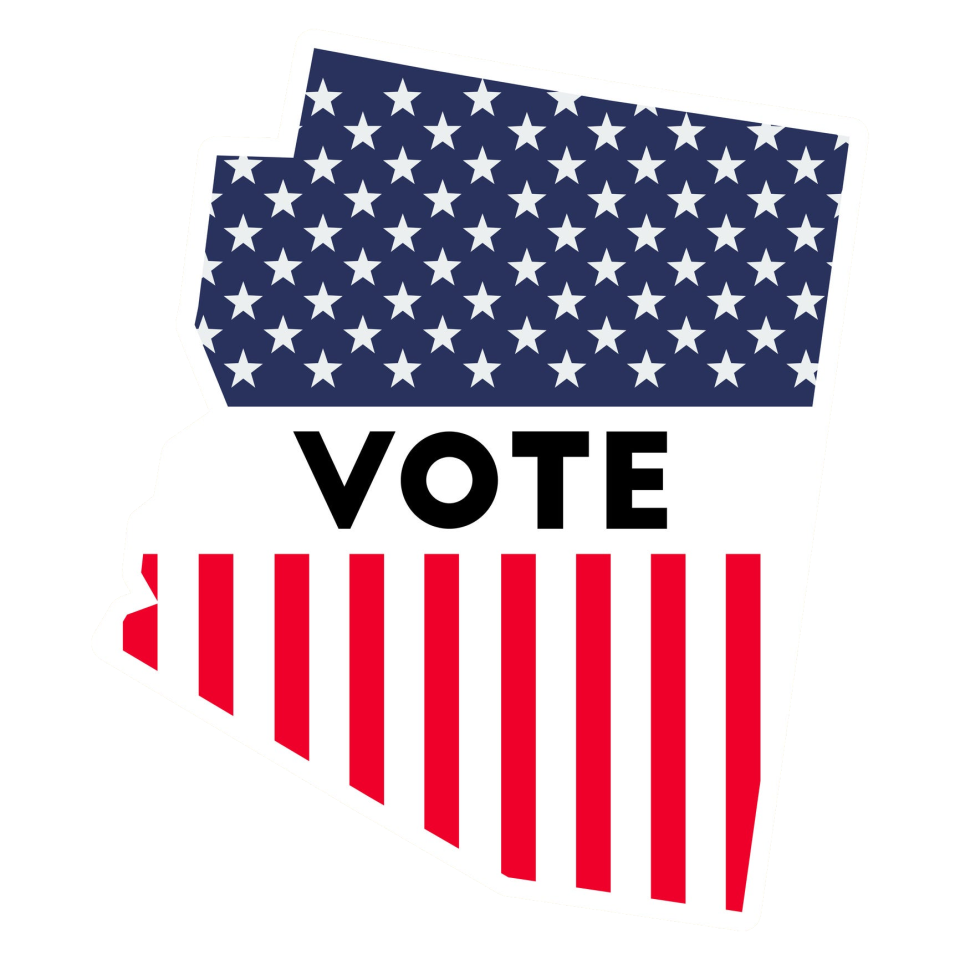
Election guide: November 2022
City races | School boards | State | Governor
| Ballot measures | Federal races | How to vote
Maintaining a peaceful election
Asked about election security, Gates said it would be na?ve to believe there was no possibility of violence during the election, but the county and state have prepared with law enforcement agencies.
“There are people who want to disrupt this election, and they are going to be dealt with very strongly,” Gates said.
For Arizona voters, elections usually only happens every two years, Lorick said. But for elections officials, the preparation has been ongoing.
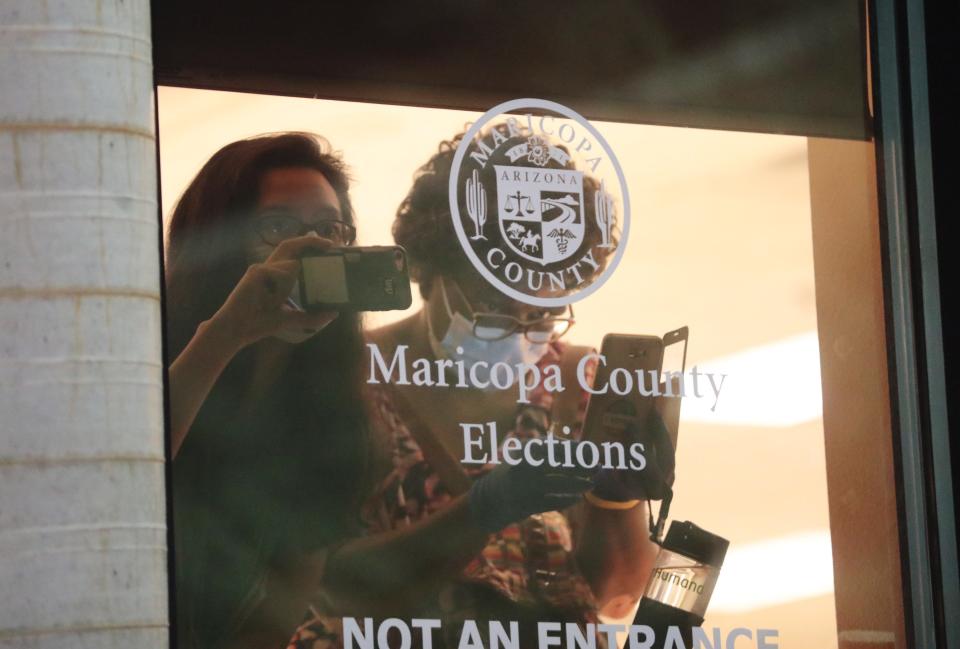
“We've been waiting for this election for the last two years,” she said. “We build a culture of security. That means we're working with our law enforcement partners. We're working with our county partners, and we are doing all of the things that we need to do across that two-year time span.”
Each county now has a threat liaison officer who will communicate with law enforcement quickly if the need should arise. However, Lorick said, state officials want voters to know they are prepared, but they should feel safe to go and vote.
Reach the reporter at cvanek@arizonarepublic.com. Follow her on Twitter @CorinaVanek.
Support local journalism. Subscribe to azcentral.com today.
This article originally appeared on Arizona Republic: Follow you Arizona ballot: The process, security and misinformation
